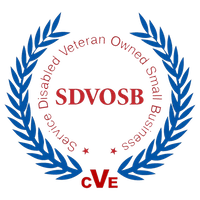A while back, I was pleased to be a guest on Steve Rush’s ‘Leadership Hacker’ podcast. 
There is one interesting question that Steve asks all his guests: what are their top leadership ‘hacks’?
Here are some of mine. They might not be what you expect!
Be willing to listen.
Try and dispense with your preconceived notions of the traditional image of a “boss.” Do more listening than talking. It isn’t easy – leaders are often expected to ‘transmit’ more than they are expected to ‘receive’ – but it is worth the effort.
Let others take ownership of decision making.
Develop a perspective where you can have others take more ownership of the team’s decision making. Trust and empower. Learn to delegate. (I really had to learn to delegate, but I saw a huge return on investment when I delegated to others.) Use a decision tree to have a process by which to delegate.
Care about others.
Caring leadership has huge second and third-order effects on an organization. Empathy and emotional intelligence matters. There’s an old saying: “I don’t care how much you know, until I know how much you care.”
Be willing to admit it when you make a mistake.
I used to be a very impatient leader. I tended to act on impulse and instinct when I was younger, but I recognize now that was a mistake – though I wasn’t able to admit it then.
Vulnerability is not weakness. Vulnerability is being authentic.
Use the Big Six as the underpinning of your leadership choices.
I didn’t invent the Big Six – instead, they are the distillation of years of advice received and experience learned. And no matter what changes the world may go through, the underlying principles will remain the same.
Realize that change won’t happen overnight.
This is not something that happens in a week or two. Truly changing the culture of an organization can take years. It is about dedication and persistence.
It is worth it, because of the alternatives – dysfunction, stagnation, and eventual defeat by the competition.
I don’t think organizations are truly successful unless they work towards a world-class culture. Yes, they can be successful in a temporal way. They can make a profit for a period of time by just directing activities or micromanaging processes, but there’s always an eventual tipping point.
The most successful companies don’t allow that type of ‘directive’ culture to dominate their way of life. They insist on engaging in involving all the members of the team in the future of the organization – and they are the organizations that last for the long-term.
You can listen to the podcast episode here:
You can also read a transcript of our discussion here.
Enjoy the Journey!
Did you find this blog post beneficial? If so, please consider sharing it with your audience using one of the choices below. It’ll just take a second, but could improve someone’s work habits for a long time to come.





